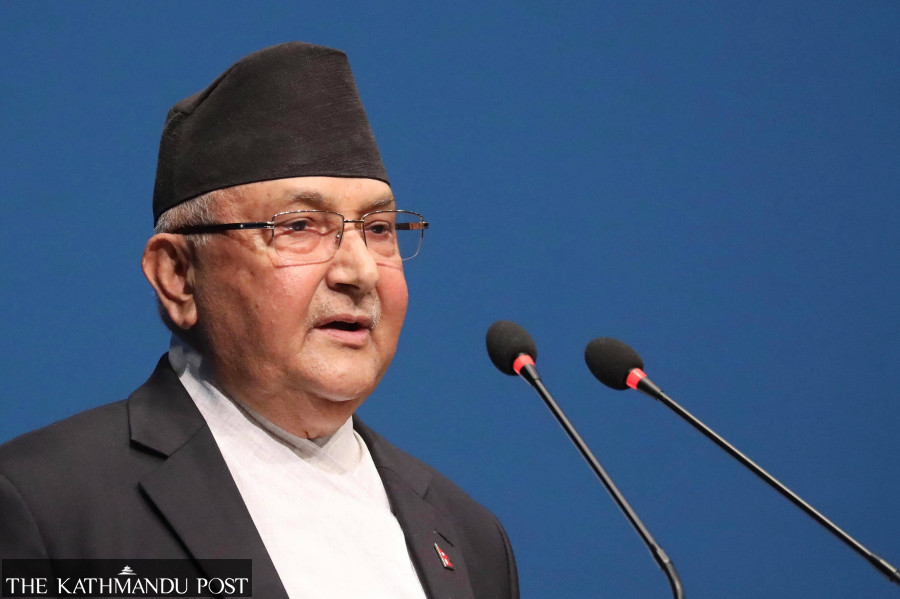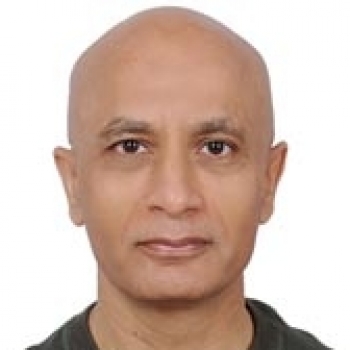Columns
The cost of pseudo-communism
Oli is gone, but someone will fill the vacuum he has left behind in his party.
Paban Raj Pandey
KP Sharma Oli, prime minister until the 9th, early this month, was one of the 26 leaders attending China’s military parade marking the 80th anniversary of the end of World War II. President Xi Jinping was flanked by guests of honour, Russian President Vladimir Putin and North Korean leader Kim Jong Un. Indian Prime Minister Narendra Modi, who just a few days ago had attended the Shanghai Cooperation Organisation, an international security organisation of 10 member states including India, skipped the parade. Other attendees included ex-Soviet Union states such as Belarus, currently communist nations such as Cuba and Vietnam, as well as authoritarian states such as Army-ruled Myanmar.
Oli’s presence at the parade raised a few eyebrows. That said, countries like Zimbabwe, the Maldives and ASEAN members such as Malaysia and Indonesia were also among the attendees, so it was not just a bunch of communists and authoritarians, but most of them were. On Oli’s part, he was not attending the parade as the chairman of the Communist Party of Nepal (Unified Marxist-Leninist) but as the leader of a coalition government of primarily the two largest parties—Nepali Congress with 88 seats and Oli’s UML with 79 seats in the 275-member House of Representatives. In Nepali politics, increasingly blurred lines between the left and the right make it hard to distinguish one from the other.
At least on paper, the Sher Bahadur Deuba-led Nepali Congress calls itself a social democrat but ruled Nepal in bed with a communist party for 14 months; both parties used to cockily say that they were determined to see the coalition through the next election, expected by November 2027. They espouse different political philosophies, yet were ready to coexist for the sake of power. In principle, the UML calls itself a communist party, but nothing could be further from the truth. The same applies to the Pushpa Kamal Dahal-led Communist Party of Nepal (Maoist)—the third largest party in the lower house with 30 seats. These communist leaders only cash in on the word ‘communist’ but fail to lead and live as one.
Allure of social democracy
Communism believes in the equitable distribution of wealth among a nation’s citizens and in common ownership of all property, aiming to achieve a classless society. This looks good on paper, but a one-party state control over economic activity results in large bureaucracies and inefficiencies. The government owns all the means of production, even as the concept of private property is rejected, and there is no profit motive for the workers. There is limited worker bargaining power, and individual freedoms are suppressed. Individuals are given limited choices, with limited incentives for individual innovation. All this combines to create a society lacking in a go-getter attitude, with no hunger for success.
Capitalism addresses many of communism’s shortfalls, but is not a cure-all. Businesses try to maximise profits, often causing worker exploitation. The ability to inherit wealth creates an uneven playing field, even as free-market booms and busts create societal instability. Corporations also wield political influence. In social democracy, which is a strain of socialism, regulation seeks to rein in capitalism’s excesses. Socialism attempts to take on inequality by running social welfare programs and levying high taxes to fund those. Socialist programmes can also exist side by side with capitalism. Nordic countries like Norway, Denmark, Finland, Iceland and Sweden do an excellent job of mixing capitalism with socialism.
History has shown us that communism in the truest sense does not work. Its leading practitioner, the Soviet Union, was once one of the two superpowers post-World War II, but it took Mikhail Gorbachev to discover the system was just a hollow shell; it collapsed like a deck of cards in 1991, as the former Soviet Union subsequently dissolved into 15 different countries. China, the second biggest communist nation in writing, has not been communist in the literal sense in post-Mao China. Mao Zedong died in 1976. His successor, Deng Xiaoping, had the foresight to open up the economy and embrace capitalism. China—an astounding economic success—continues to be ruled by one party, so at best it is quasi-communist.
Oli’s foreign policy faux pas
The communist parties in Nepal are not even that. They are pseudo-communists—operating in a multi-party democracy and only using communist rhetoric for political gain. Now living a life of luxury, totally losing sight of the needy life they once led as common citizen, they show a shade of communist only when they turn into an authoritarian once in power. There is no one better than Oli who fits the bill in the present context. A three-time prime minister, he is one who unconstitutionally dissolved the parliament in December 2020 and May 2021, put up with immense corruption by party cronies, and, most recently, tried to quelch the Generation Z anti-corruption movement with blood on his hands.
Hats off to Gen Z for successfully forcing Oli to turn tail and flee—and probably beginning a new dawn in Nepali politics—in less than two days! Oli is gone, but the vacuum he has left behind in his party will be filled by someone. Be it Bidya Devi Bhandari, who served as president twice, or someone else, the new leadership can learn a lot from Oli what not to do. Oli’s persistent arrogance led to his downfall. Besides, the new leadership needs to decide if they should continue to call themselves communists even if they do not genuinely adhere to communism’s principles. It is possible that Oli came under pressure to attend China’s military parade just because he was leading a communist party.
Oli’s decision to attend the parade was not well-thought-out, particularly because this was being commemorated as China’s victory over Japan at the end of World War II. Nepal cannot antagonise donor nations such as Japan, or for that matter, the United States and/or India, which can misinterpret the visit as a complete reset in relations. As a tiny nation walking a tightrope sandwiched between two giants, Nepal cannot afford to commit such mistakes. Such blunders also send a wrong signal to foreign investors. Hopefully, the new government tactfully focuses more on economic growth, which will result in improved living standards, than getting mired in regional or international politics.




 15.12°C Kathmandu
15.12°C Kathmandu















